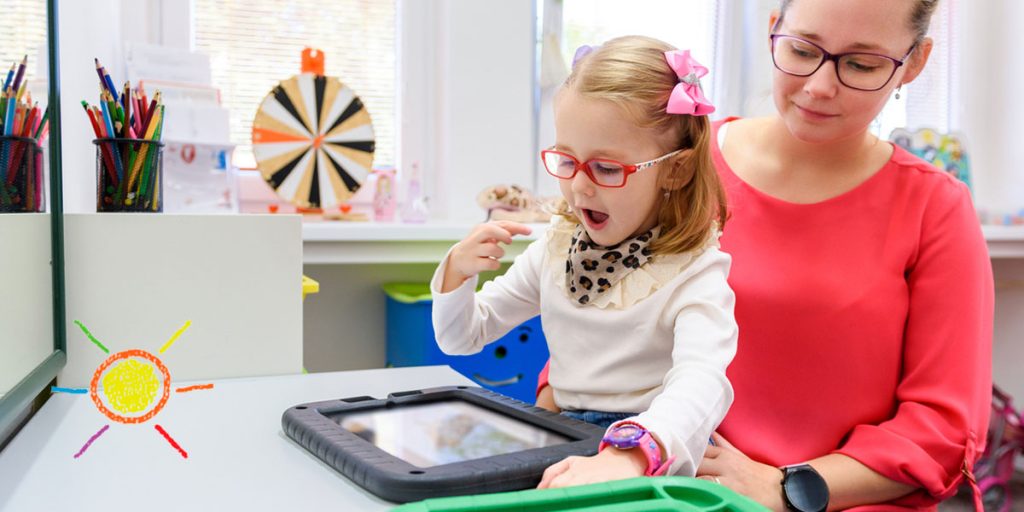While they may or may not have had an autism diagnosis, more than a tenth of Americans live with autism spectrum disorder, a condition that was unknown a century ago, and has become better understood over time both in the mainstream and within the psychiatric community.
When it was first discovered, it was theorized to be a mental illness, caused by childhood trauma and unemotional mothers. Since then, we’ve come to understand that autism is not a mental illness and is not caused by trauma. Autism begins in the womb and consists of a wide breadth of symptoms and behaviors, encompassing the definition of autism spectrum disorder. It can be mild in certain aspects and severe in others, with children displaying great difficulty in completing certain tasks and excelling at others.
As we learn more about how autism develops and how it is expressed, we also learn more about how to help children cope with it. If your child has been given an autism diagnosis, it’s important to take a deep, calming breath, and understand that you are far from alone.
State resources exist to help you and your child, and while the path forward will be different for everybody, it’s important not to panic. Your child is still your child, the same sweet boy or girl you fell in love with when they first came to this world, and you are still their parent, their greatest supporter, and their loving protector. There will be a lot to learn and a lot to understand, but in time you will come to accept this.
Don’t Get Isolated by an Autism Diagnosis
First and foremost, take the time to look around for help. Speak with a pediatrician and with professionals who specialize in children diagnosed with autism and learn more about your child’s specific symptoms and behaviors. Look around for support groups locally or online, and don’t lose touch with friends and family. It’ll be harder to spend any time outside of caring for your child, but that doesn’t mean you can’t look after yourself anymore. Keeping your own sanity is important, especially if you want to continue to care for your child.
Seeking advice from other parents with older children with autism can help a lot. They will likely help give you guidance to stay sane in particularly difficult situations, and help you deal with common problems such as public outbursts, issues with guilt and shame, and your own mental health.
Inform yourself on what your options are for treatment and support. Health services and insurance can help cover costs for treatments and therapies, and it’s important to speak with your child’s school (if they are going to school) about their needs and challenges.
Lots of Stress and Strain
There are two crucial things to be aware of as parents of a child with an autism diagnosis: for one, couples caring for a child with autism are more likely to divorce, and secondly, parents caring for a child with autism self-report much more stress.
That is to say that the stress and strain of caring for someone with ASD can be immense and will likely affect your relationship. The key is developing healthy ways to cope, as well as emphasize. Many parents figure that the best way to deal with their given situation is to assign the role of caretaker primarily to one parent, while the other takes care of the other tasks and responsibilities of a household.
However, it’s important to recognize that such an approach can often create a bigger rift between two parents caring for a child diagnosed with autism. They begin to lead separate lives and have very different experiences with their child. It’s important for both parents to be involved in their child’s life and treatment and be empathic of each other’s struggles and challenges.
It’s okay to assign roles, but it can’t always be all work. Sure, finding a babysitter with the needed skill and experience can be a nightmare, and going out is often impossible. But that doesn’t mean there’s absolutely no room for coping or appreciative gestures, special occasions, and a little love and understanding.
Try Different Things
Some treatments are known to work better than others but getting help for your child isn’t always just about knowing what the latest research says. Autism is an incredibly individualistic disorder, and it expresses itself in countless different ways. Some children develop very differently form others, and there’s no real way to predict how your child will thrive, or what they will struggle with the most.
As such, it’s really important to try things. Try everything and anything. Try different therapies. Try different games. Try different toys. Try different sports. Different clothes, shows, apps, books, or schools. Take your child swimming on one weekend, then cycling the next.
Teach them to play football, then baseball, then soccer. Take them to go see farm animals, or to the zoo, or to the dog park. See how they respond to each activity and take note. What works best? What do they enjoy doing the most? What did they take the most interest in? What kind of therapy do they respond to the best?
Don’t Expect Miracles
As parents, it’s clear that you want the best for your child, and anything that promises a good outcome will immediately grab attention – but it pays to be skeptical and approach such claims with a critical eye. More often than not, people attempt to prey on frustrated, tired, and desperate parents who want nothing more than a better life for their child.
Over the years, it’s common to butt heads and experience frustrations, and even feel depressed. This is not an easy position to be in. But that does not necessarily make it a bad one. An autism diagnosis is life-changing, but it does not preclude your child from leading an amazing and inspiring existence, through your love and support. You will make mistakes and feel terrible from time to time but keep going. Over time, looking back, you’ll have countless wonderful memories to draw on, and be grateful for.


